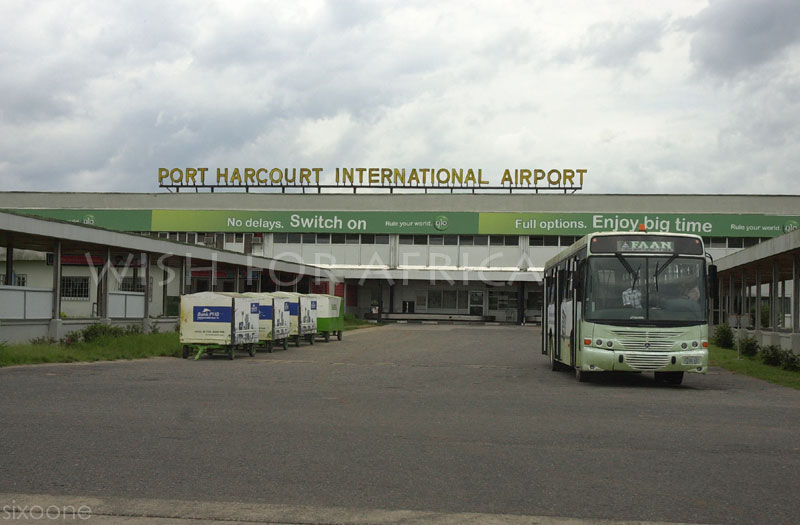Business
Tension In PH Airport Over Car Hire Operators, Taxi Operator Clash

Tension was high, last Friday, at the Port Harcourt International Airport, Omagwa, which affected commercial taxi operations for some hours, following a clash between the FAAN Accredited Car Hire Service and a suspected bolt taxi operator.
Trouble started when some members of the car hires spotted and blocked the taxi operator on the suspicion that he was a bolt operator.
The car hires in order to restrict the suspected bolt driver from moving further, used their tyre piercing tool to secure his compliance, but his insistence to move further caused one of his tyres to be punctured.
The idea of stopping the suspected bolt driver, according to the car hires, was for him to properly identify himself, whether he operates bolt or not.
Hell was let loose when the suspected bolt driver discovered that one of his front tires had punctured: he went wild in confronting every suspected opponent, without minding the passenger he had in his car.
He grabbed one of his stoppers and almost suffocated him with his heavily built muscular frame, as no one was able to remove his hand from his victim’s throat.
He also blocked the exit road with his car so that no could vehicle pass, and everything done to pacify him was turned down.
His attempt to use a matchete he got from his car for assault was foiled by the crowd that gathered him and manourvered to take the matchet from him.
“I will die here today. You fools will kill me today, and I will not listen to anyone. All I want is my tyre”, he said.
By: Corlins Walter
Transport
Automated Points Concession : FAAN Workers Gave 72hrs To Revise Decisions In PH

Transport
FAAN Announces Pick-Up Points for Go-Cashless Cards

Business
Fidelity Bank To Empower Women With Sustainable Entrepreneurship Skills, HAP2.0
-
Politics3 days ago
2027: NIGERIANS FAULT INEC ON DIGITAL MEMBERSHIP REGISTER DIRECTIVE
-

 Environment3 days ago
Environment3 days agoLAWMA Director Says Sweeping Reforms Have Improved Waste Collection
-
Politics3 days ago
LP Crisis: Ex-NWC Member Dumps Dumps Abure Faction
-

 Politics3 days ago
Politics3 days agoUmahi Dismisses Allegations On Social Media, Insists On Projects Delivery
-

 Sports3 days ago
Sports3 days agoAbia Not Sure To Secure continental Ticket
-
Politics3 days ago
NATASHA ELECTRIC VEHICLES INITIATIVE IN KOGI CENTRAL
-
Sports3 days ago
La Liga: Yamal Records First Career Hat-trick
-

 Sports3 days ago
Sports3 days agoPSG Extend Lead In Ligue 1

